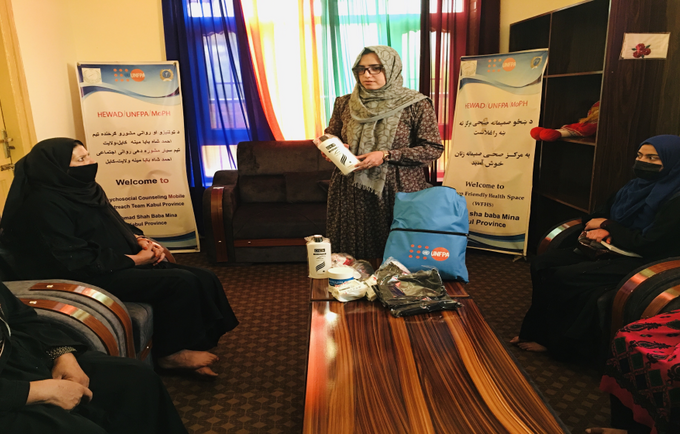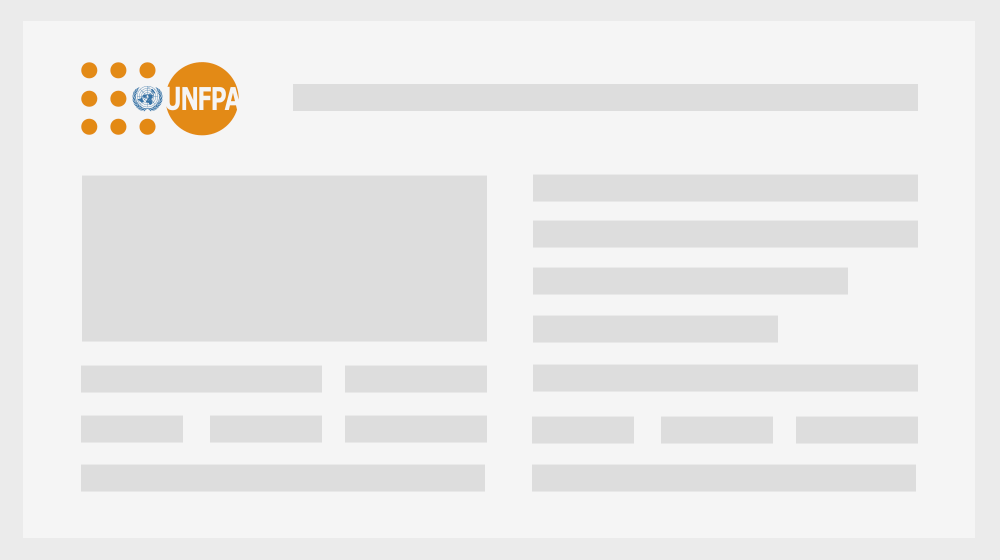Kabul, Afghanistan – Adolescent girls often feel uncomfortable talking about their periods, leaving too many questions in their minds about menstrual health unanswered. But for a youth educator who regularly engages young girls about menstrual health, youth health education sessions are a game changer.
“Adolescent girls fear speaking about their menstrual period. However, through the youth education sessions, they gain knowledge and become more confident talking about it,” Hella Hidai, a young educator says.
Managing menstruation is often challenging, especially in conservative and poor communities. Such challenges are increased by societal taboos, secrecy and embarrassment around menstruation. During emergencies, girls and women face even greater barriers managing menstruation given the loss of privacy and safety often associated with living in emergency contexts.
Young people have a key role in driving change and advocating for menstrual health. The female youth educators in health facilities are resource persons that support awareness raising for adolescents, girls and young women in their health issues including Menstrual Hygiene Management (MHM). Ms. Hidai, a youth educator in Kabul, has been ensuring adolescent girls understand how to use MHM supplies, dispose of menstrual waste and have access to basic education on menstrual health and hygiene.
“We live in a conservative and traditional community. Many girls do not have information about menstrual health and their menstrual period, they need help, they need to be provided with information and awareness about it,” says Ms. Hidai. “When girls are provided with useful information about menstrual health and hygiene, their self-assurance and wellbeing improve as well.”
The first period is generally a surprise. Sometimes girls are scared or worried they are sick. They may not know who to ask for advice. Information about menstruation is frequently passed on from mothers, friends, sisters or aunts, and is often a mixture of cultural beliefs, superstition and practical information that is sometimes helpful and sometimes not.
From her own experience, Ms. Hidai knows that limited sources of information is not the only barrier to menstrual health. Taboos and traditional beliefs restrict girls from talking about it in their families. “I tell young girls that it is normal and they should not be ashamed of it,” Ms. Hidai explains.
She adds that she is happy about her work as many young girls are engaged and more are coming week after week to receive information. “In the beginning, the girls felt embarrassed when I discussed menstrual hygiene and menstrual period with them, but now they feel comfortable about such topics and talk with female family members about them with confidence.”
“The young girls of today will be mothers in the future. If they gain the knowledge about menstrual health now, they will not be ashamed to talk about such topics when they have their own daughters,” Ms. Hidai adds.
What do adolescent girls need?
For many girls, the onset of puberty marks a time of restricted mobility and heightened vulnerability including risks of child marriage. Adolescent girls are also less likely to seek care at health facilities for reproductive health services out of fear of provider bias and lack of confidentiality.
UNFPA adopts programme adjustments to address specific needs and support girls to manage their periods safely and with dignity. UNFPA provides women and girls with Dignity Kits and customized Adolescents Girls MHM Kits in order to support their personal hygiene. The kits contain essential hygiene items such as underwear, menstrual pads, soap, shampoo, etc.
“Menstrual hygiene should not be taboo. It is an issue of every woman and all families, so men and boys should also be provided with awareness about this topic so they can support their daughters and sisters,” Ms. Hidai says.
Provision of the dignity and adolescent MHM kits are supported with the generous contributions from the Agency for Development Cooperation (AICS), Bureau of Population, Refugees, and Migration (BPRM), Department of Foreign Affairs and Trade (DFAT), European Civil Protection and Humanitarian Aid Operations (ECHO), Special Trust Fund for Afghanistan (STFA), the Government of Denmark, and the Government of Spain.


